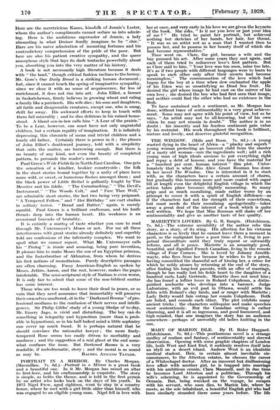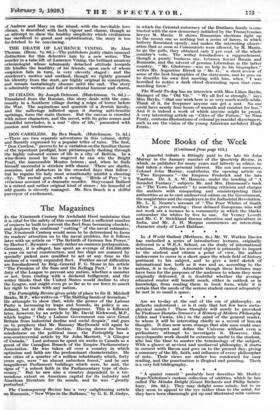MARY OF MARION ISLE. By H. Rider Haggard. (Hutchinson. 7s.
6d.)—This posthumous novel is a strange medley of realism and fantasy, of sentimentality and shrewd observation. Opening with some graphic chapters of London life, both West and East End, it suddenly resolves itself into an idyll on a desert island. Andrew West is an idealistic medical student. Heir, in certain almost inevitable cir- cumstances, to the Atterton estates, he chooses the career of a Whitechapel doctor. After an innocent but disillusioning love affair with another• girl, -he is trapped into marriage with his ambitious ctounin; Clara Maimsell, -and-in due time he becomes Lord Atterton and a politician. Through his wife's scheming, he is appointed to the Governorship of Oceania. But, being wrecked on the voyage, he escapei with his servant, who soon dies, to Marion Isle, where he meets, as the sole inhabitant, a beautiful English girl who had been similarly stranded there some years before. The life of Andrew and Mary on the island, with -the inevitable love climax, is described with both vigour and charm, though as an attempt to show the healthy simplicity which civilization has sacrificed to greed and sophistication, the story is too far-fetched to be convincing.









































 Previous page
Previous page